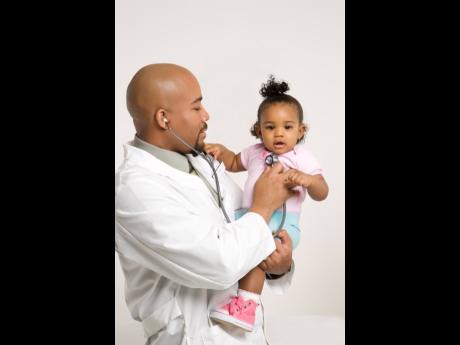Dear Doc | Runny nose and more at preschool
Q Dear Doc, I am very upset! I took my child to preschool (nursery) for the first time last week. She was always a healthy child, has never been sick, and now she keeps coughing with a cold, and having runny nose, and it doesn’t seem to be getting better. I know she got it from the nursery. Should I stop taking her there? What can I do to make her better?
A In this back-to-school season that can be very common, especially with children going to school or nursery for the first time. It is also always distressing to mothers, who worry about their children. Coughing and runny noses are symptoms of the common cold.
These symptoms are usually caused by a viral infection.
Most persons get over a cold without lasting problems. Even so, having a cold is very uncomfortable; and if your child has a cold, it can be hard to know when the symptoms call for a trip to the doctor.
Symptoms of the common cold include:
Sneezing
Coughing
Sniffling and runny nose
Sore throat
In children, the common cold can also cause a fever.
Most people who have a cold do not need to see the doctor or nurse. But you should have your child see her doctor if she has:
A fever of more than 100.4ºF (38ºC) that comes with shaking chills, loss of appetite, or trouble breathing.
A cough that lasts longer than 10 days.
Chest pain when she coughs.
Trouble breathing.
Coughing up blood.
Refuses to drink anything for a long time.
Has a fever and is not acting like herself.
Has a stuffy or runny nose that gets worse or does not get any better after 10 days.
Has red eyes or yellow discharge coming out of her eyes.
Has ear pain, pulls at her ears, or shows other signs of having an ear infection.
Take your child to the emergency room if she:
Becomes confused or stops responding to you.
Has trouble breathing or has to work hard to breathe.
In children, the common cold is often more severe than it is in adults. It also lasts longer. Plus, children often get a fever during the first three days of a cold.
If your child is younger than six years old, you should not give her any cold medicines. These medicines are not safe for young children.
Never give aspirin to any child. When giving your child paracetamol or other nonprescription medicines, never give more than the recommended dose.
Colds usually last 10 days in children, but some may have symptoms for up to two weeks.
In some cases, having a cold can lead to:
Pneumonia or bronchitis (infections of the lungs).
Ear infections.
Worsening of asthma symptoms.
To help keep her from getting another cold will prove difficult when she is in and out of the home environment; however, while at home, the most important thing you can do is to wash your hands often with soap and water. Hand sanitisers work well, too. The germs that cause the common cold can live on tables, door handles, and other surfaces for at least two hours. You never know when you might be touching germs. That’s why it’s so important to clean your hands often. You can encourage a hand-washing campaign at your daughter’s nursery in order to prevent a recurrence.

